College of Human Sciences
Examining peculiarities in the African Pentecostal tradition
On 23 February 2022, Professor Mookgo Solomon Kgatle delivered his inaugural lecture titled ‘Peculiarities in the African Pentecostal Tradition: Disciplinal and Decolonial Perspectives’. This theological intellectual hails from the Department of Christian Spirituality, Church History and Missiology in the College of Human Sciences. He is a family man whose four pillars for life in academia are patience, courage, focus and teamwork.
Click here to view a recording of the lecture.
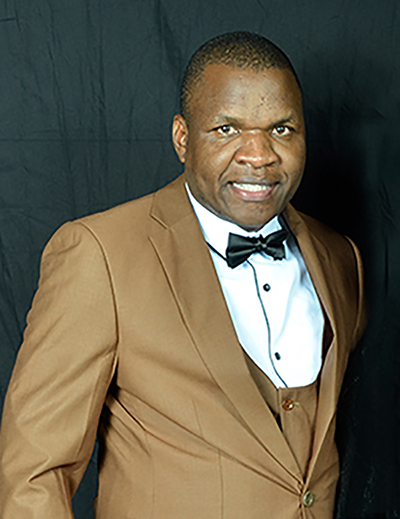
Prof Mookgo Solomon Kgatle
The evolution of Pentecostalism
Thirty percent of Christians in South Africa are Pentecostal, so this was a very important lecture. Kgatle took the audience on a journey of the history of the Pentecostal Church, dissecting its complicated evolution. Kgatle’s lecture was brave and dealt with burning issues directly, and he also tackled decolonisation.
A central issue discussed was how to make Pentecostalism relevant to Africa, and how to stop the commercialisation of the church. Kgatle submitted that the Decolonial perspective is important for the education system in Africa as we strive to develop new knowledge that will be relevant to different African contexts. “This is important,” he said, “as we have a quest to un-learn the Eurocentric epistemic canon, re-learn African indigenous knowledge systems and acknowledge African indigenous languages.”
The dawn of freedom in this country saw the merging of churches. Kgatle reflected on the systematic racism that still exists in the church, and the disrespect and oppression of black Pentecostal scholars.
Government’s role in cleaning up the Church
In Kgatle’s closing remarks, he mentioned the government’s Commission on Churches. “There have been several scandals that has made headlines involving the church,” he said. “These scandals have dented the image of the church.”
In conclusion, Kgatle that the government needs force churches to pay taxes. “The Pentecostal Church is the fastest growing church in South Africa,” he concluded, “and government needs to weed out the fake prophets and pastors. Pastors must be educated and qualified to call themselves that.”
Professor Kgatle in his own words
Asked by our journalist what influenced his research interests, Kgatle responded as follows:
“I got interested in African Pentecostalism after the successful completion of my doctoral study which was based on the application of servant leadership in the African Pentecostal Christianity. Since then, I was able to produce several publications on the same niche area. Therefore, the postgraduate studies (masters and PHD) play an important in influencing the path that an academic should take in following research interests, but a successful academic is not limited by his or her research interests but should be able to do interdisciplinary, multidisciplinary and transdisciplinary research.”
* By Veli Mabona, Marketing Assistant, College of Human Sciences
Publish date: 2022/03/01
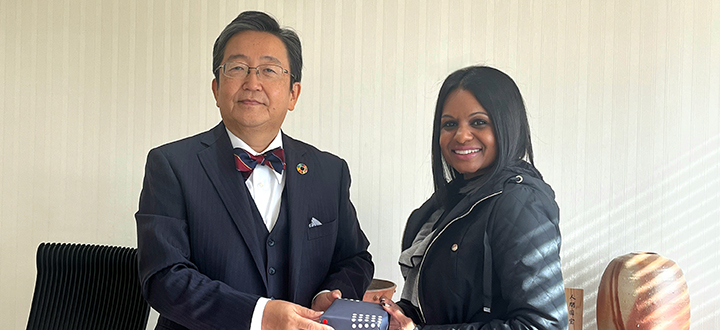
 From unemployed graduate to business founder
From unemployed graduate to business founder
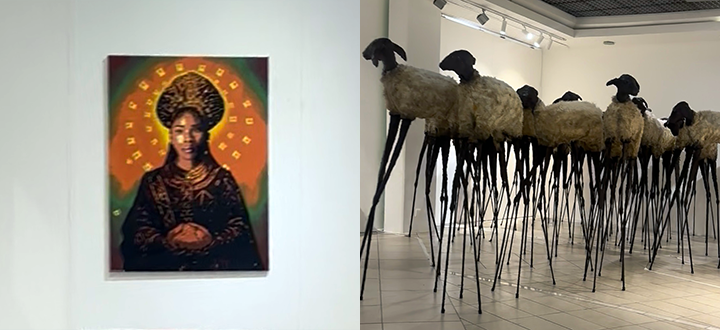 Multidisciplinary showcase set to celebrate the creative achievements of Unisa art students
Multidisciplinary showcase set to celebrate the creative achievements of Unisa art students
 Cheers! Unisa toasts its award-winning student brewers
Cheers! Unisa toasts its award-winning student brewers
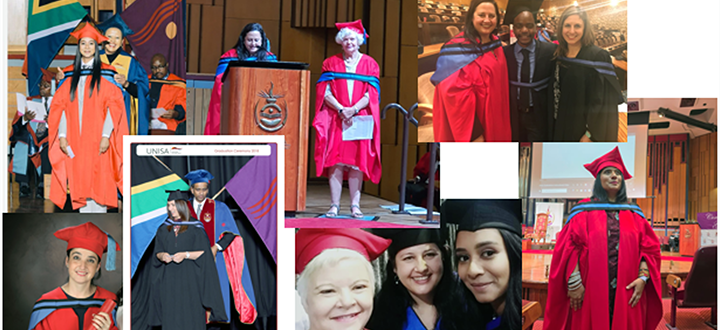 Building a community of strategy-as-practice researchers
Building a community of strategy-as-practice researchers
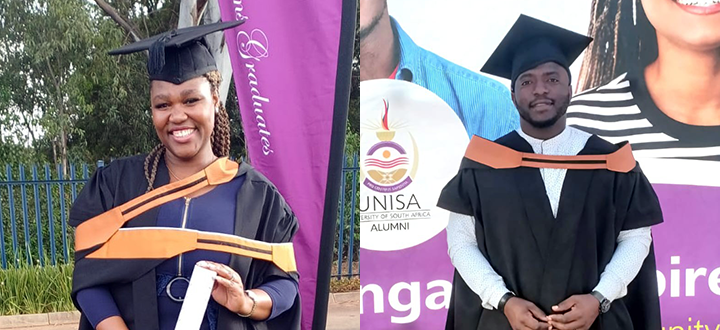 Matrimonial magnificence as husband and wife graduate at Unisa
Matrimonial magnificence as husband and wife graduate at Unisa